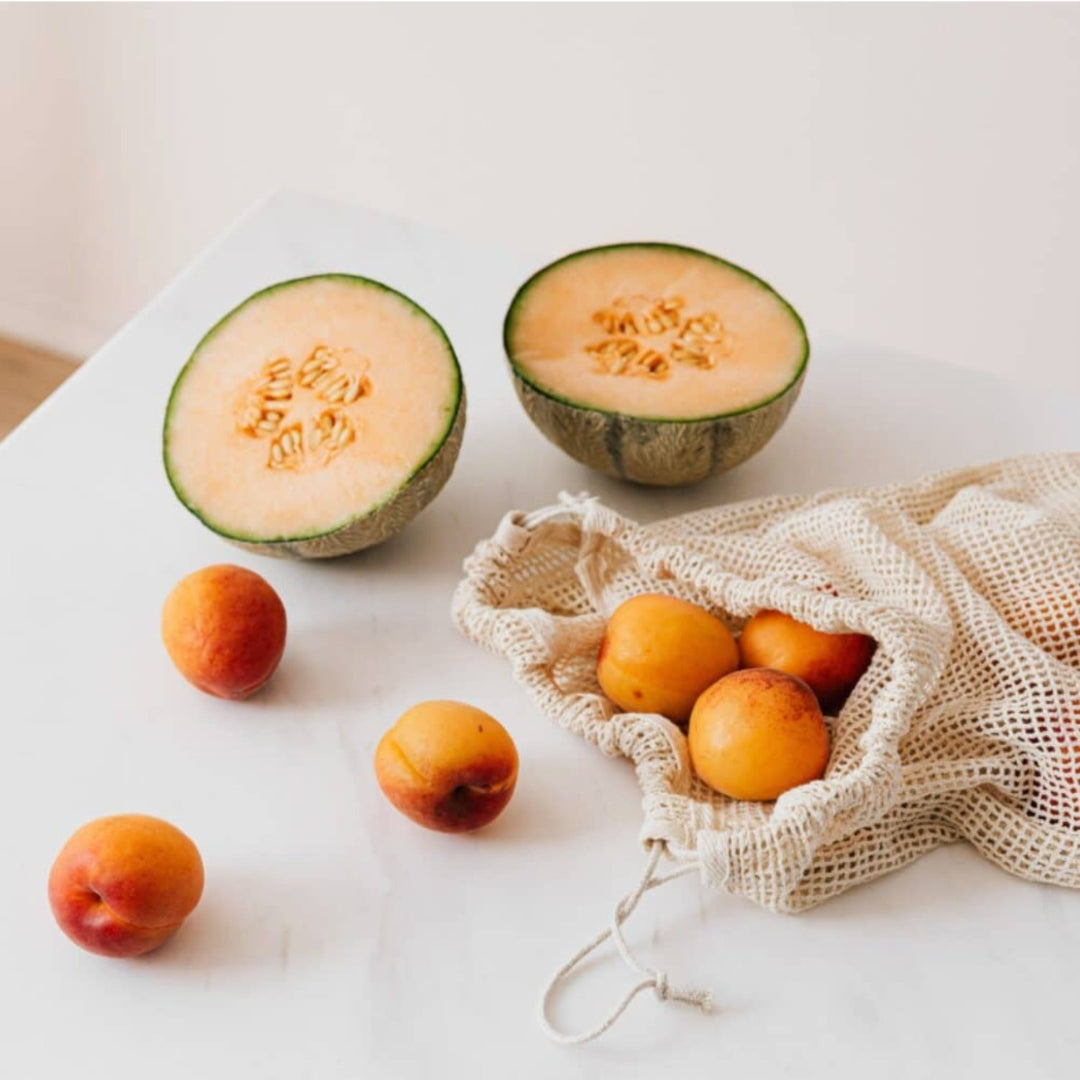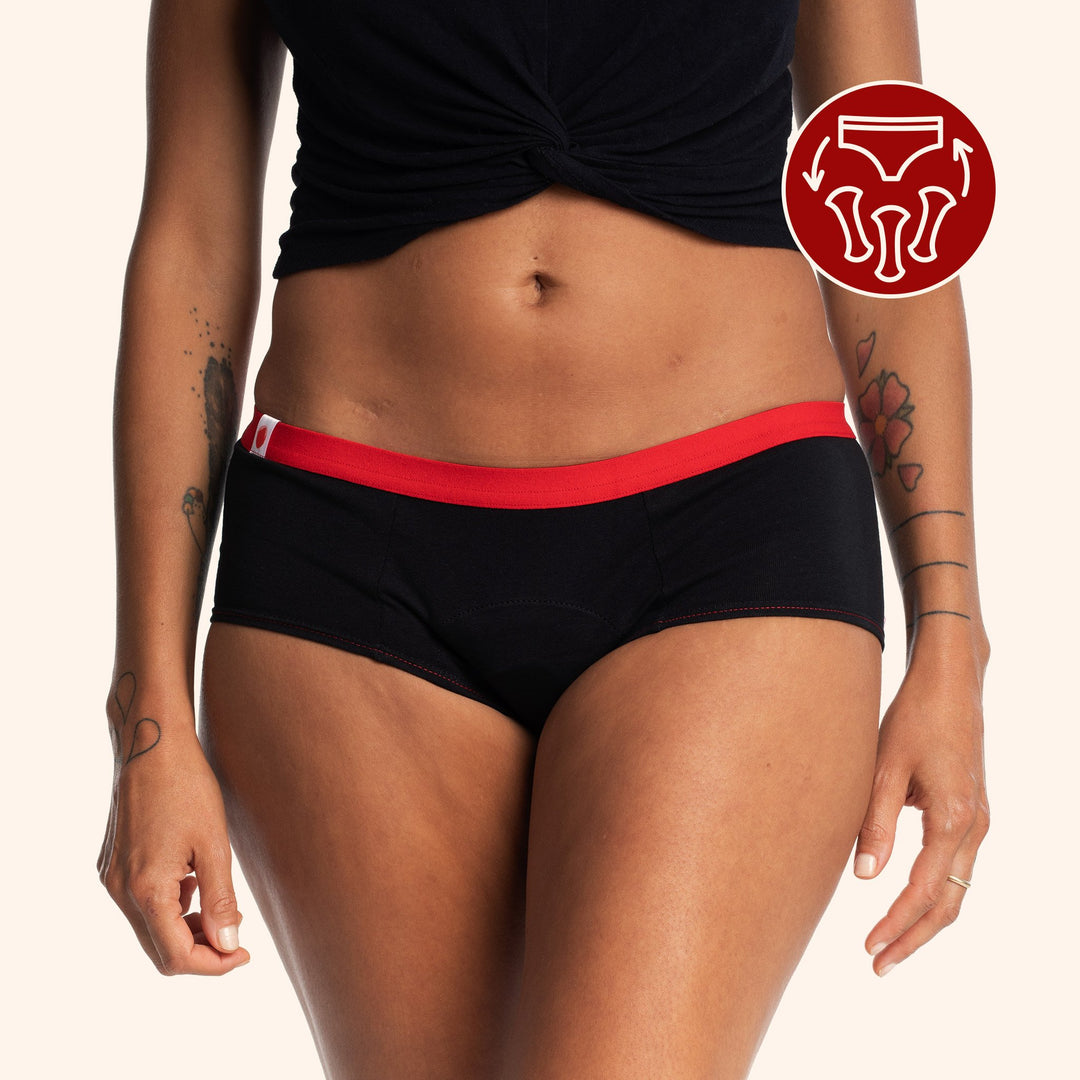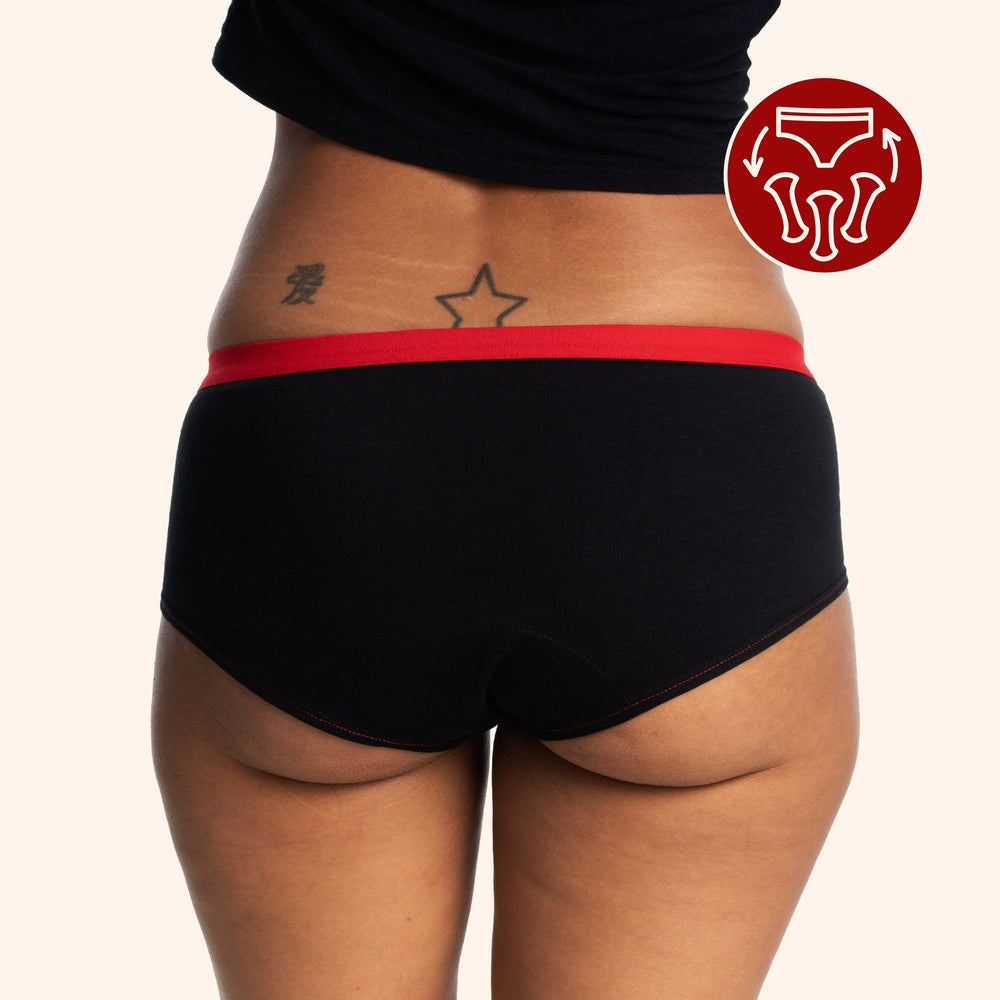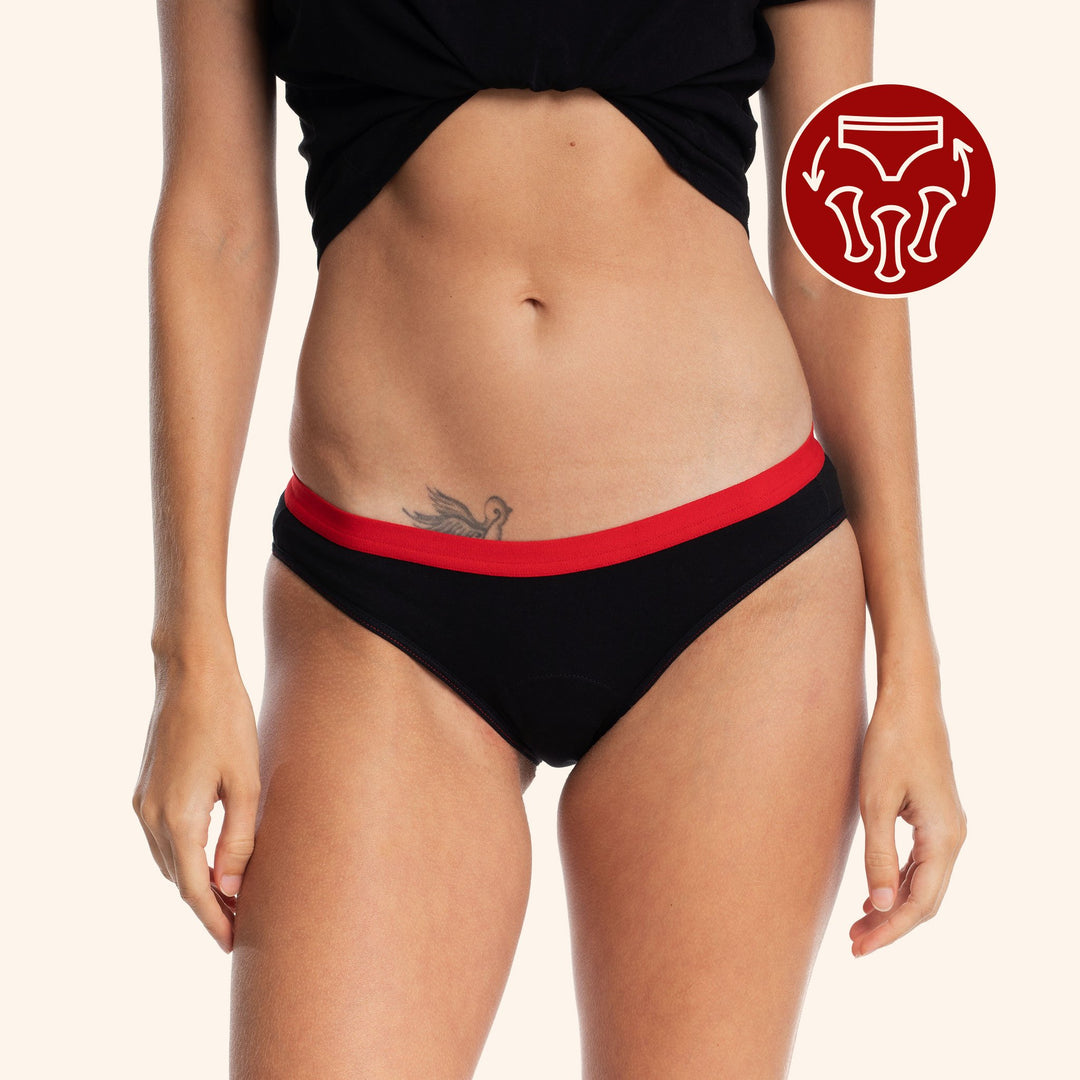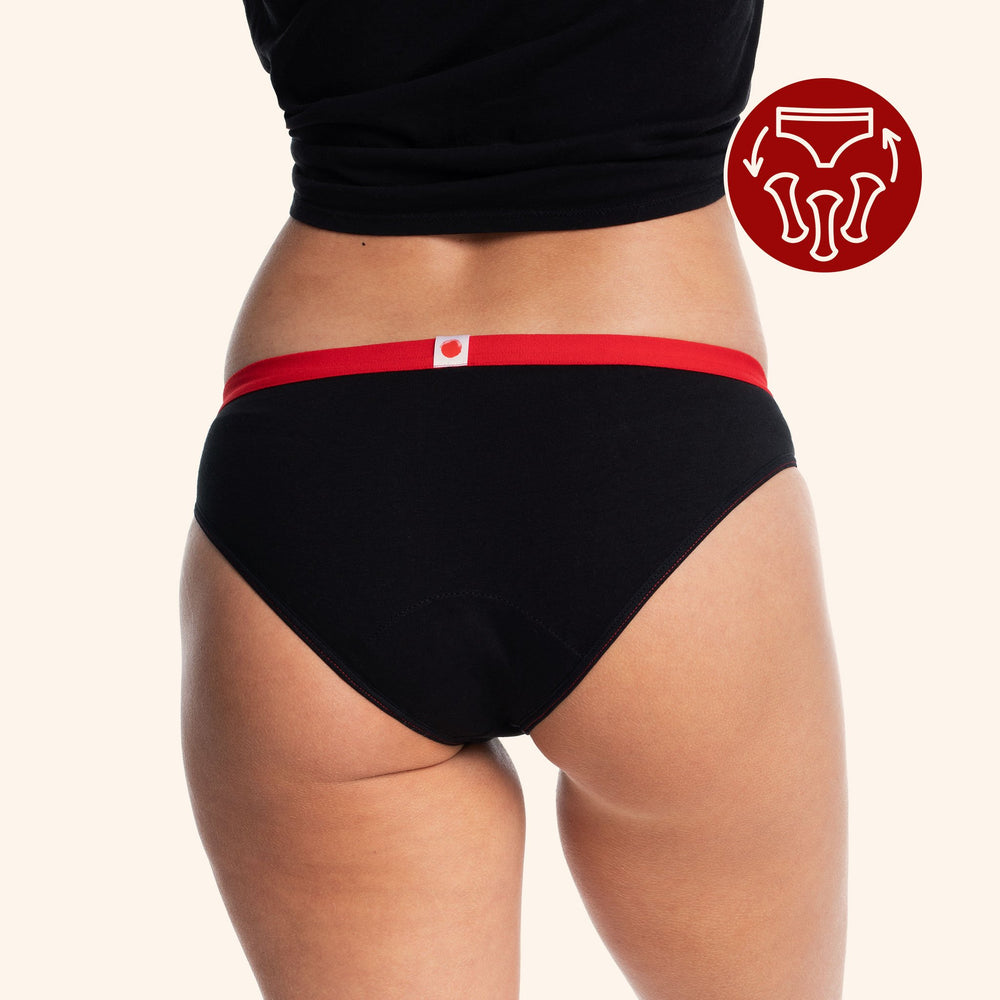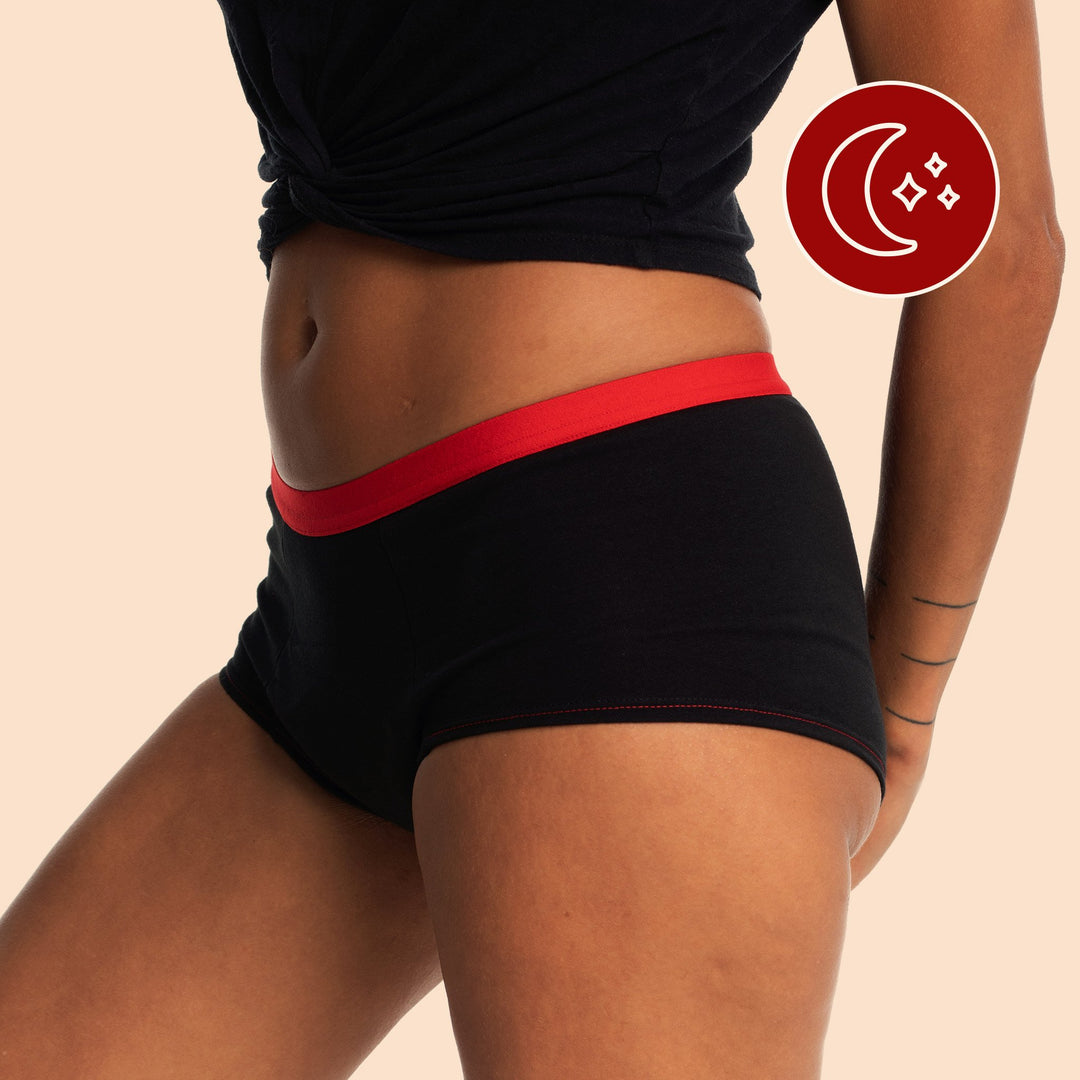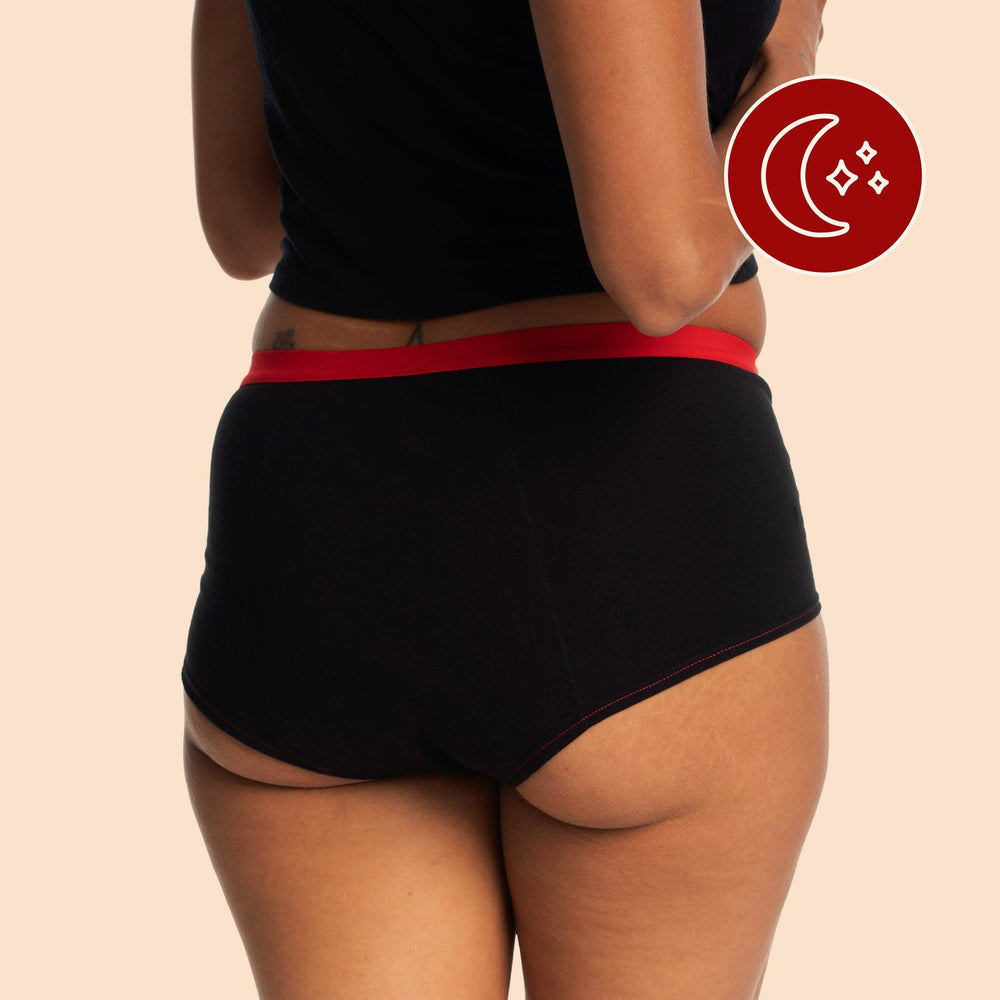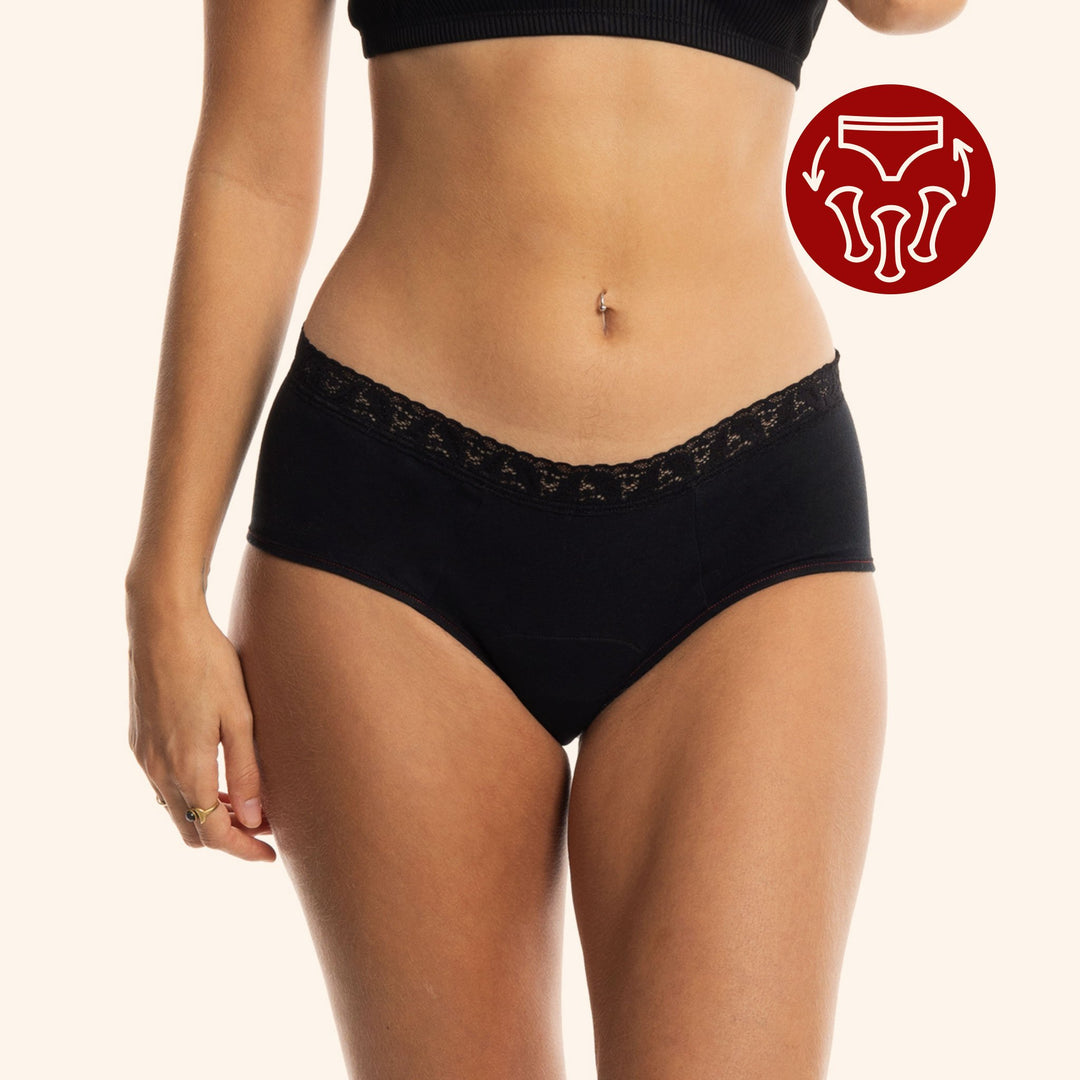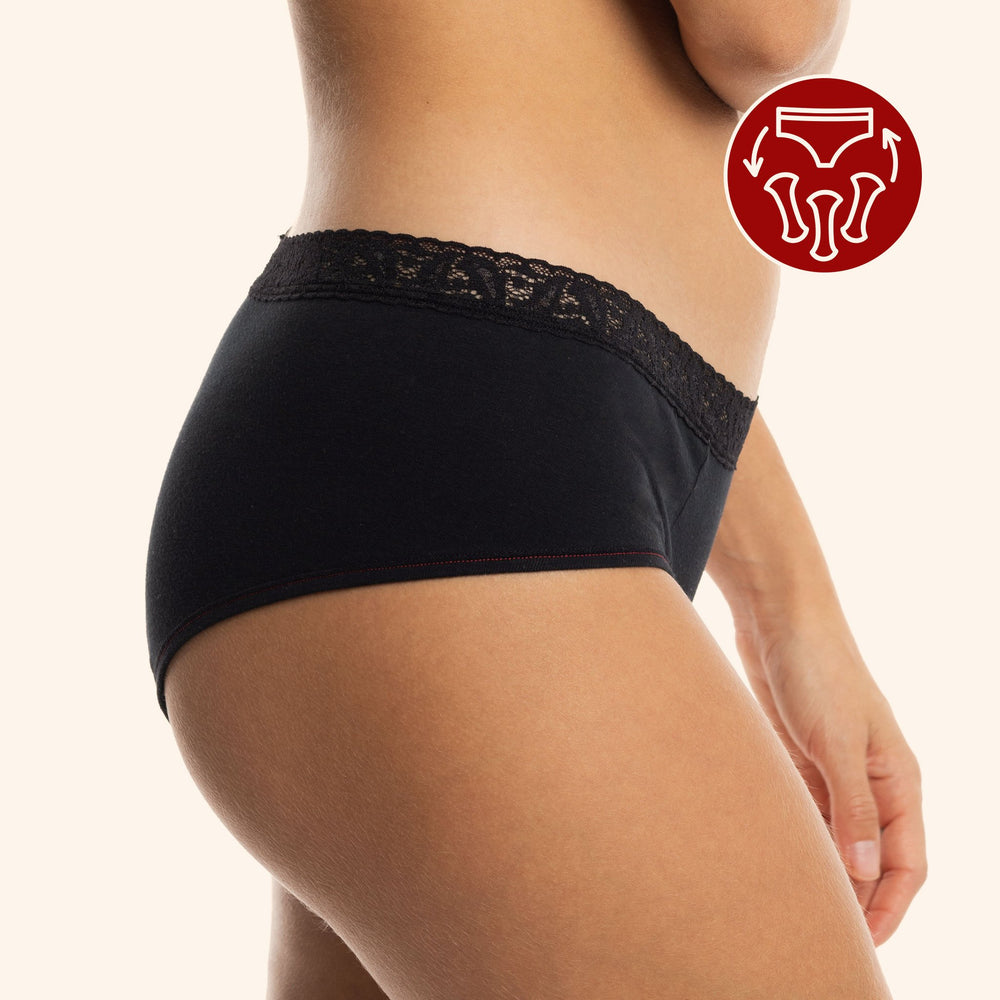Postpartum essentials : Selfcare in the 4th Trimester of Pregnancy
If you've already given birth or have that life-changing event coming up soon in your life, we want to start by saying thank you, and above all, well done.
Thank you for carrying life inside you and bravo for your courage and strength in going through this process that so many other women before you have gone through.
When we plan a birth, we think mainly about the event itself, since it's a unique and transformative moment that requires mental and physical preparation.
But we also prepare the house, the baby's room, the equipment to care for him or her (rocking chairs, bassinets, toys, breast pumps, pacifiers and so on…).
Then we find ourselves on the other side of the mirror, at home and in a new body (again) that’s finishing its work after childbirth…
This post-natal period is called the 4th trimester (you may have heard of it), and is characterized by a number of psychological and physiological changes.
And we're thinking that maybe we could have had a little sweet drawer ourselves…
Products to clean a C-section scar or a sore vulva, soothing bath products, creams and ointments with a comforting texture or a scent we enjoy, a postpartum pillow, absorbent panties... All those things to take care of US are the big forgotten items in the nesting phase of pregnancy.
In fact, we're the ones who've been left out of a deeply upsetting process that affects us quite a bit, we agree!
One of the most underestimated things is lochia (vaginal discharge composed of blood, endometrial cells, mucus and other now useless uterine components) and sometimes bladder weakness.
At present time, the same challenge exists in the world of postpartum solutions as in that of menstrual solutions: we are mainly offered disposable products, generally uncomfortable and treated with PFAS (more on PFAS in this dossier) that we place directly on our most intimate parts, often raw.
We'd have to put these towels in hospital mesh panties, or washable panties with a more than dubious look to keep everything in place, which we'd obviously never reuse in our lives.
But why? Why, in this moment of extreme vulnerability following childbirth, should we impose on our bodies toxic, uncomfortable and often ugly products that will only serve us once?
Haven’t we already given ourselves over to discomfort during pregnancy?
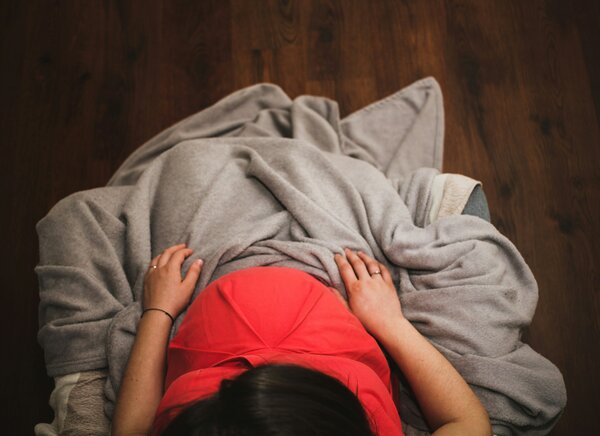
The women behind Mme L'Ovary believe that all women should be able to celebrate themselves at every moment of their cycles.
Celebrate themselves in softness, comfort AND beauty, respecting their ethical and environmental values, but above all in a way that's healthy for their body.
At this time in your life, as wonderful as it is complicated, allow yourself to slip into a pair of well-designed panties that are in line with your values.
If you're feeling a little guilty for thinking about anything but baby, tell yourself that it takes a balanced, healthy parent to take good care of a newborn. <3
The 4th trimester of pregnancy (postpartum period)
Motherhood is a journey rich in emotions, challenges and transformations.
While pregnancy and childbirth are intensely celebrated moments, the 4th trimester often remains in the shadows, despite its crucial importance.
The 4th trimester is the period that encompasses the first 3 months following childbirth. It's a transitional phase as mother and baby adapt to their new reality.
Physiologically, the body undergoes considerable changes as it recovers from childbirth, and hormones continue to fluctuate.
The length of the postpartum period (or 4th trimester) varies greatly from one woman to another.
1 to 6 weeks after delivery
The first few weeks are often characterized by post-delivery physical recovery (severe fatigue, pain, bleeding and hormonal changes).
Total physical recovery can take much longer!
Breastfeeding and baby care
For breastfeeding mothers, breastfeeding (and all it entails in terms of physical discomfort, effort and scheduling constraints - despite the magical moments and unique connection it enables) can take time and energy.
Caring for the newborn, adjusting to the sleep routine, and managing the household can also play into feelings of exhaustion, guilt and low self-esteem.
Back to work
For some women, the end of the 4th trimester can coincide with a return to work. This is another major adjustment, sometimes bringing with it social pressure and the challenge of getting back into the swing of things.
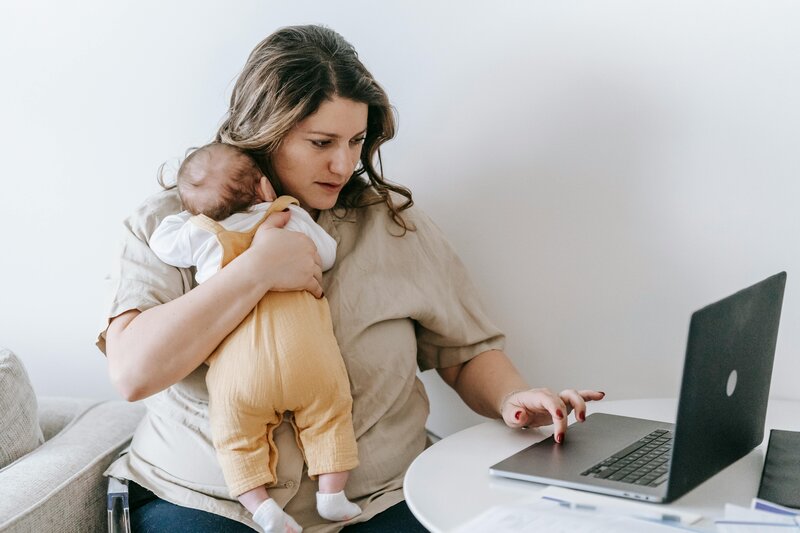
Physical and psychological impacts during the postpartum period
Physical level
- Postpartum lochia, a vaginal discharge composed of blood, endometrial cells, mucus and other now useless uterine components).
- Postpartum urine leakage that may result from a weakened perineum.
- Hormonal changes, leading to many psychological symptoms as well as hot flushes).
- Intense recovery phase. Whether after a C-section or a vaginal birth, the quality of postpartum recovery can have long-term implications for physical health.
Psychological level
- Newborn shock: lack of sleep, adjustments to daily life, and managing the baby's needs can have a significant impact on mental health, creating what is known as newborn shock.
- Hormonal variations can lead to mood swings, and sometimes episodes of postpartum depression.
- Guilt, shame or loss of self-esteem linked to social pressure to return to their old life quickly and care for the baby according to prevailing social norms.
- Redefining identity: The 4th trimester can be a time of personal search, at a time when new parents are particularly vulnerable.
Postpartum essentials - Selfcare postpartum kit
What's easy to lose sight of is that the 4th trimester is not an illness, full of symptoms to fight and problems to solve.
It's a time of healing, when body, heart and mind need a deep rest in the midst of the joyous chaos we call parenthood.
Rather than trying to get through it as quickly as possible, take the time to settle into it and take care of it - a bit like you were told to do with your contractions.
The house may be a mess, dinner may be a whole vegetable and a bowl of cereal, and baby may not be photoready all the time.
That's okay.
The priority is to take care of your baby, but also your body (which has performed quite a miracle) and your mental health.
Mme L'Ovary's team is made up almost exclusively of women, many of them mothers. Here's the postpartum essentials kit they've put together for you.
Never forget to consult your doctor or midwife before using any postpartum solution.
For relaxation
- A mister with an essential oil you like for those moments of the day when you need to immerse yourself in your own world without baby.
- A happiness playlist (you can even have several, with more dynamic and calmer songs depending on the time of day).
- A rich body cream with a whipped butter texture that makes you dream.
- A blend of herbal teas (caffeine-free) to support your reproductive and healing system.
- A few good, easy-to-read books (like a collection of short stories or a light novel) to take your mind off things (and your phone from time to time).
- Lavender essential oil to put on your pillow - it promotes sleep and will give you a nice smelling bed every time you lay your head down.
- A nice pitcher or big bottle of water that you can carry around with you (you'll be thirsty).
- A warm blanket in season, or a big poncho, scarf or comforter.
- Natural candles to rest your eyes and brighten the mood when you're rocking baby to sleep.
For nursing nipples
- A natural ointment or cream for chapping and irritation. Make sure it's not dangerous for the baby, who may ingest a little when feeding. Calendula- and lanolin-based products are often recommended.
- Nursing pads, or washable make-up remover pads, brushed with aloe gel and kept in the freezer.
- Chamomile bath or compresses.
- Comfortable, well-fitting nursing bras.
GOOD TIP: Use your breast milk as a lotion, and go bare-breasted as often as possible. These are the two best remedies for irritated nipples.

For sore vulvas
Soothing spray for the vulva
You can make your own soothing spray for the vulva by mixing an infusion of chamomile and calendula with pure aloe vera in a spray bottle kept in the fridge.
Stir well before spraying. Try it elsewhere on your body first to make sure you don't have an allergic reaction.
Infusions and bath (or sitz bath) products
Water infused with calendula and chamomile can be added to your bath, as can Epsom salt or sea salt in small quantities, for their soothing and anti-inflammatory properties.
You can also add a few drops of lavender essential oil (which has relaxing properties and promotes healing) or tea tree oil (which has antiseptic properties and helps prevent infection) to baking soda (which helps maintain the pH of the genital area and relieve itching) in your bath.
Make sure you have an Intimate soap to wash with. It's a gentle, fragrance-free soap suited to your sensitive private parts.
The crotch ice pack
Keep a few Mme L'Ovary removable pads soaked in a little water (or even better, chamomile hydrosol) in the freezer. They'll make an intimate ice pack for when you need to cool off. You can also coat them with aloe vera gel before putting them in the freezer!
A postpartum cushion to sit on without putting pressure on the healing area
AND FINALLY (most importantly)...
A healthy, comfortable and practical postpartum panties that make you feel beautiful and comfortable
In fact, Mme L'Ovary is offering a set of panties specifically for the postpartum.
Mme L'Ovary’s washable panties are made of cotton and...
- They come in several styles (high-waisted for C-section scars, boxer-style for absolute comfort, and many more).
- The removable washable pads can be replaced without removing the panty, and stay in place without wings or snaps thanks to Mme L'Ovary’s pocket system.
- The Postpartum Kit comes with washable maxi pads for heavy bleeding, but you can replace them with regular pads later.
- They’re designed in Québec and made from healthy materials (we also offer undyed organic cotton pads), and are certified PFAS-free (tested in an independent lab to prove it).
- You can use them as menstrual panties once your cycle comes back.
- They’re black, so they’re guaranteed spotless, no matter what happens (although some discoloration may occur, depending on the acidity of your vaginal flora).








